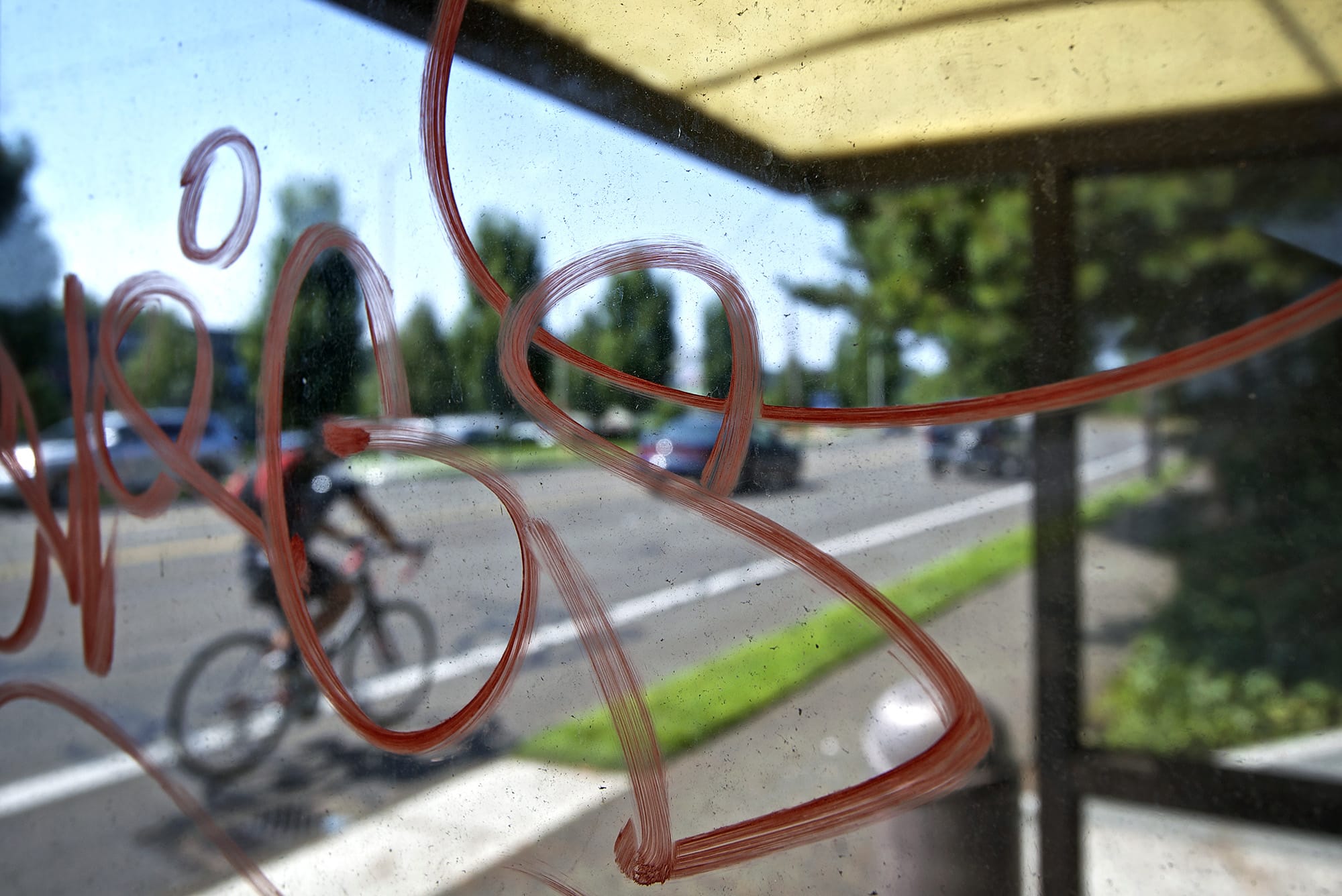Graffiti in Vancouver city limits
If you see someone defacing public or private property, call 911. For details on how to report graffiti on public or private property in the city of Vancouver, go to www.cityofvancouver.us/police/page/graffiti.
New criminal and civil codes geared toward fighting a growing graffiti problem were approved Monday by the Vancouver City Council.
City staff studied 21 ordinances from different cities, including Portland, Seattle, Tacoma and Yakima, and presented the council with a middle-of-the-road approach, said Judi Bailey, neighborhoods program manager.
“They are not the most lenient, and they are not the most strict … I think it’s a really good start for us for addressing graffiti in our community,” Bailey said.
The codes, which had been discussed at a workshop earlier this year, were approved by a 6-0 vote. Mayor Tim Leavitt was absent.
They include new criminal codes to assist with prosecuting vandals, new civil penalties for parents of minor offenders, and the addition of “maintained free of graffiti” to the city’s minimum property maintenance code.
Two full-time employees
Graffiti, defined as unauthorized and unwanted markings “written, marked, etched, scratched, sprayed, drawn, painted, engraved, adhered to, or otherwise affixed” on public or private property, already falls within a law prohibiting “malicious mischief.” And it has become a big enough problem in Vancouver that the public works department has two employees working full time to remove graffiti from city-owned property, Bailey said.
Graffiti affects other public agencies, too: Clark Public Utilities cleans up utility boxes, while the Washington State Patrol is responsible for cleaning up graffiti on state highways and overpasses. C-Tran, meanwhile, dispatches employees to clean up graffiti on bus stops and buses.
Now, a new city code makes “possession of graffiti implements” a misdemeanor. That means instead of getting caught in the act and charged with a gross misdemeanor, a suspect could still be charged with a misdemeanor if he, for example, has paint on his hands, a backpack with spray paint cans and was spotted leaving the scene.
In Washington, a gross misdemeanor can bring a sentence of up to one year in jail. A misdemeanor carries a maximum penalty of 90 days in jail.
Bailey said the city would seek jail alternatives, such as making offenders clean up graffiti as part of a community service sentence.
Also under the city code, parents of a minor convicted of defacing property could be liable for up to $5,000 in damages.
Restrictions on sales
The code also makes it illegal for minors (younger than 18) to purchase broad-tipped markers, pressurized containers, or paint sticks, and says any business selling those items should ask for identification if the buyer appears younger than 18.
Councilor Anne McEnerny-Ogle singled out one code update as long overdue: Private property owners will now be responsible for cleaning up graffiti.
With the updated minimum property maintenance code, the city has teeth to go after absentee landlords who haven’t been bothering to clean it up, she said.
“This has been a huge problem for us,” she said.
The city will also encourage businesses that sell “graffiti implements,” such as aerosol paint cans, broad-tipped markers and paint sticks, to keep them in an area easily observed by employees to cut down on shoplifting. Businesses also will be asked to post a warning that graffiti is a crime punishable by imprisonment and that parents of minors may be liable for damage.
The new laws didn’t come with a budget request, but City Manager Eric Holmes noted in a report to the council that they “may initially cause greater work load for law enforcement.”
Holmes also noted that businesses may choose not to participate in the city’s efforts to cut down on graffiti.
At the council’s workshop in April, Vancouver Police Cpl. Doug Rickard said only 10 to 15 percent of graffiti in the city was gang-related.



